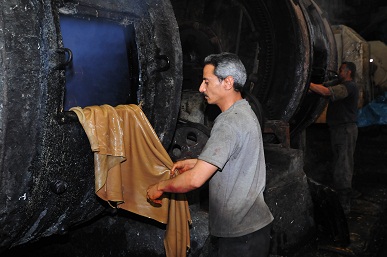
The first chapter of the draft constitution was discussed on Sunday for the Constituent Assembly to vote on.
The first section on the main principles underpinning the state, titled “the state and society,” contains the clauses pertaining to the economic structure of the country.
Article 13 to article 27 give guidelines on the economic system established in the constitution.
The objective of the national economy, according to article 13 of the draft released by the Constituent Assembly, is to achieve balanced sustainable development, protect the production and income increase, and guarantee social justice, and solidarity and welfare. The article also undertakes the protection of consumer and labour’s rights, the fair distribution of wealth, and eradication of poverty and unemployment.
The preliminary draft pledges state protection of agriculture, natural resources, the Nile river, water resources, water surfaces, and beaches. It also obliges both the state and society to protect public funds and private property, confirming that expropriation is prohibited unless it serves “national interests.”
The coordinator for Citizens against Price Hikes commented the draft saying that “this constitution is not in favour of the poor, the orientation of the current regime is clear, it is in favour of the rich,” citing the electricity crisis and the increase in prices as proof of his claims.
The representative of the consumer group confirmed that neither his organisation nor the other consumer rights’ groups were represented in the Constituent Assembly.
According to El-Asqalani social justice can be achieved through fair trade, just distribution of wage, and just taxation.
Fair trade, according to him doesn’t harm the consumer or the producer, and it must be adopted in any country that seeks to implement a free market economy, through legislation that protects the poor and preserves the interest of the rich.
The political marketing coordinator of the youth committee at “The Free Egyptians” party Hazem Helal stated that the Constituent Assembly excluded many experts. He added the few words in article 13 are not enough to achieve the social justice, the article according to him did not contain any mechanisms or action plan to realise the principal demands of the 25 January revolution.
He added his youth committee demands a revision of this section and a reformulation that supports the development of the Egyptian economy internally and externally, the attraction of investment and the promotion of all income sources such as agriculture, industry, commerce and tourism.
The head of the Economic committee of Al-Noor Party Tarek Shaalan said “Egypt’s problems are very complicated and I cannot come up with one set of actions that fit them all, that’s why we suggest an economic vision foreseeing parallel systems.”
The parallel systems, according to Shaalan, allow the applying of different laws in different zones to address issues such as subsidies, pensions, unemployment and the rental law.
“We have to create new cities following new codes and standards, like the European code, with special taxes and employment systems,” said the economics expert. “These new cities and zones should be run according to flexible laws that don’t impose minimum or maximum wages, or employment security in the public sector and that allow special taxation systems and the abolition of subsidies.”
To achieve these goals, the Islamist party proposes an article that allows the passing of special laws, and is “currently lobbying with other parties to include it in the new constitution,” said Shaalan.



